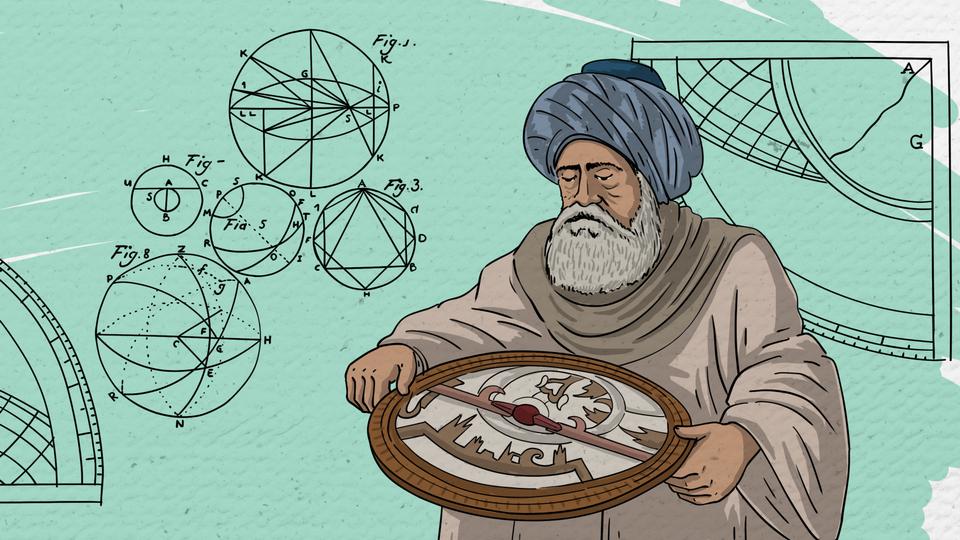Pioneer of spherical trigonometry: Who is Al-Battani?
Arab astronomer. In medieval Europe, he was known as Albategnius.

(858-929) Arab astronomer. It has influenced astronomy through the ages with the accuracy of the observation results and especially the knowledge of spherical trigonometry. Abū ʿAbd Allāh Muhammad ibn Jābir ibn Sinān al-Raqqī al-Harranī aṣ-Ṣābi was probably born in or around 858, in Harran (in Anatolia, today's Urfa province), the religious and cultural center of the Sabians. Bettani, who was thought to be a Sabian religionist and later converted to Islam, lived there with his family, who left Harran and settled in the city of Raqqa on the left bank of the Euphrates. He continued his astronomical observations, which he started in 877, until the end of his life. He died in Qasr al-Cis, near Samarra, on his way back from Baghdad in 929. In medieval Europe, he was known as Albatenius or Albategni.
Only one of Bettani's four works mentioned in the sources, his most important work al-Zic ("Astronomy Tables"), has survived to our time. This work, in which he collected the results of observation, not only influenced Arab astronomers but was translated into Latin in the 12th century and directed the development of astronomy and spherical trigonometry in the Middle Ages and Renaissance Europe. In this work, in which Bettani accurately determined the inclination of the ecliptic plane, the length of the periodic year and the seasons, and the true and average orbits of the Sun, he corrected many errors in Ptolemy's observation results. It was Bettani who, taking into account the movement of equinoxes, was the first to explain that the sun's apocalypse is not fixed as Ptolemy said, so the time equation that gives the difference between average and real-time undergoes a slow change over a century.
In the 15th century, Regiomontanus made great use of Bettani in solving spherical trigonometry problems, and in the 18th century, Dunthorne applied Battani's observations of lunar and solar eclipses while calculating the century-long acceleration of the Moon's motion.
-------------------------------------------------------------
Al Battani: the 9th-century Muslim star of astronomy
Inspiring the world of science from the likes of Galileo to Copernicus, this is the story of a Muslim scientist whose groundbreaking discoveries left an indelible mark on astronomy.
https://www.trtworld.com/magazine/al-battani-the-9th-century-muslim-star-of-astronomy-56540
